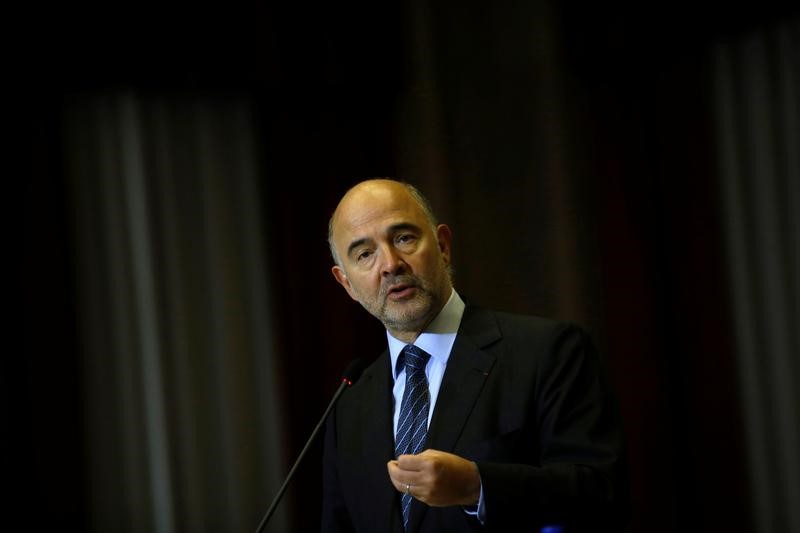BRUSSELS (Reuters) - The European Commission is disappointed that Swiss voters rejected plans to overhaul corporate taxes and will consult with European Union governments on how to proceed, the EU tax commissioner said on Monday.
Voters on Sunday blocked the tax system revamp, sending the Swiss government back to the drawing board as it tries to abolish ultra-low tax rates for multinationals without triggering a mass exodus by those companies.
The vote put non-EU member Switzerland on a collision course with the EU and the Organisation of Economic Cooperation and Development, the club of rich countries. The Swiss had promised to meet international standards and end by 2019 special low tax rates that benefit around 24,000 foreign companies.
"The Commission is very disappointed by the results of a referendum in Switzerland," European Commissioner for Economic and Financial Affairs Pierre Moscovici told a news conference.
"The rejection of the reform and referendum means we need to redouble our efforts when it comes to taxation. The Commission plans to consult the member states so we can decide together how to proceed," he said.
The OECD said in reaction to the referendum result that Switzerland could still meet its international obligations, but must lose no time in finding a solution.
"Switzerland’s partners will expect it to implement its international commitments within a reasonable time period and this need not happen within the context of a wider reform, which could take longer than the two years originally foreseen for these changes," OECD tax director Pascal Saint-Amans said.
Most Swiss recognise that the country needs reform to avoid being blacklisted as a low-tax pariah. But new measures proposed to help companies offset the loss of their special tax status fuelled fears among voters that regular taxpayers would have to pay more.
Swiss Finance Minister Ueli Maurer warned in the vote's aftermath on Sunday that Switzerland could be blacklisted as a low-tax pariah or that other countries could start double taxation of Swiss-based companies.
It could take a year for the federal government and cantons to come up with a new plan, and even longer to implement it. At the same time, competition on company tax rates could be ramped up by U.S. President Donald Trump's administration or post-Brexit Britain.
"There will certainly be other countries seeking to entice corporations away from Switzerland," Maurer told the Swiss broadcaster SRF. "That begins today."
Business leaders warn that the vote has created uncertainty and left Switzerland in legal limbo while it works out a new plan for taxes, but Credit Suisse (SIX:CSGN) left its forecast for Swiss economic growth this year at 1.5 percent.

Leftist groups that led the successful campaign to block the tax package called for making shareholders contribute more to financing the corporate reforms, perhaps via taxes on capital gains or dividends.